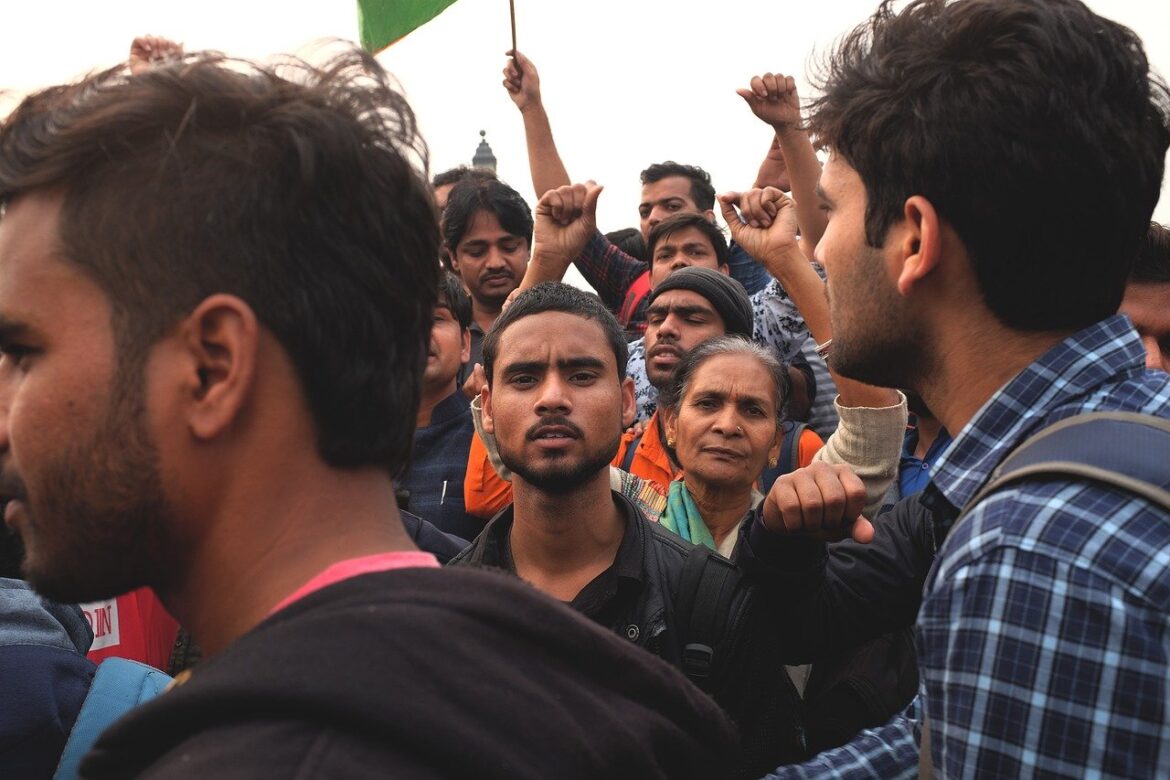On October 23, a Pakistani court granted Bail to a Christian who had been detained on terrorism and blasphemy charges since June in Lahore, Pakistan. The person’s lawyer claims that the high court reached this conclusion after finding severe errors in the police evidence.
Arrested on June 23, Chand Shamaun faces charges of insulting Islam under Pakistan’s blasphemy laws and the Anti-Terrorism Act. Lawyer Javed Sahotra claimed to have been accused of stirring up religious tensions in Okara, Punjab Province, by threatening to desecrate the Quran.
A two-judge Lahore High Court bench of Muhammad Tariq Nadeem and Syed Shahbaz Ali Rizvi approved Shamuan’s bail application on October 10. Shaman’s children are 5 and 2 years old.
Section 295-A states that deliberate acts meant to insult religion and its followers can lead to imprisonment for up to 10 years.
Section 9 of the ATA covers offenses that aim to incite or potentially incite sectarian hatred, carrying a maximum sentence of seven years in prison.
According to Sahotra, the high court noted that the police sub-inspector Haider Ali’s FIR against the Christian suggested the police had terrible intentions.
Sahotra documented a formal accusation against his client in a Christian Daily International-Morning Star News statement.
“The 12 hours after the alleged occurrence, the complainant was lopsided on the incident scene; there were no independent witnesses; the police listed only one witness, a police e-informer who frequently served as a complainant or witness in false cases.
Most importantly, the police did not recover any direct evidence linking Shamuan.
He said the court ordered Shamuan’s release on Bail against a surety of 100,000 rupees (USD 362), noting the discrepancies in the police’s FIR and investigation report. Shaman regained freedom on October 23 after being released from prison. “Chand is with his family now, but they are not living in their home,” Sahotra said. “They were forced to move to a safe house for security reasons.”
The attorney added that he also had received threats because of his advocacy work for persecuted Christians.
A prominent church leader from Christian Daily International-Morning Star News has stated that Shamuan has been accused of the blasphemy case unfairly.
Baptist Bishop of Sahiwal Abraham Daniel revealed that the police mistakenly viewed a family quarrel as a religious clash despite no blasphemy allegations.
Under Pakistan’s blasphemy laws, those found guilty of insulting Muhammad can be sentenced to death, though authorities have yet to carry out a death sentence for blasphemy.
Pakistan has witnessed a surge in attacks on blasphemy suspects in recent years. Accusations or mere rumors of blasphemy spark rioting and rampage by Muslim mobs that can escalate into killings.
The United Nations Human Rights Committee on October 17 observed that Pakistani authorities have failed to curb a range of human rights violations, including a sharp increase in blasphemy-related violence. Expressing serious concern over frequent attacks against religious minorities, including accusations of blasphemy, targeted killings, lynchings, mob violence, forced conversions, and desecration of places of worship, the committee stated that Pakistani society has become increasingly intolerant of religious diversity.
“Religious minorities are facing a constant threat of persecution and discrimination amid the rise of religious radicalism,” the committee stated.
Meantime, in an open letter to the Commonwealth Secretariat ahead of the Commonwealth Heads of Government Meeting in Samoa on October 21, a coalition of 17 international human rights organizations demanded the suspension of Pakistan from the Commonwealth of Nations due to its blasphemy laws and other rights violations.
The letter reiterated concerns raised by the UNHRC over the increasing abuse of the controversial blasphemy laws.
The letter highlighted Pakistan’s failure to reform its blasphemy laws, stating that while no state-sanctioned executions have occurred, vigilante justice and mob violence have become rampant.
Mobs killed about 85 people who were facing blasphemy charges before the trial even started.
“The Pakistani government’s inaction has resulted in the deaths of many innocent people, and its refusal to reform these oppressive laws contradicts the values espoused by the Commonwealth,” stated one of the signatories, Willy Fautré, director of Human Rights Without Frontiers.
Pakistan retained its seventh position on Open Doors’ 2024 World Watch List, continuing to be one of the most challenging places for Christians, as it was in the previous year.




